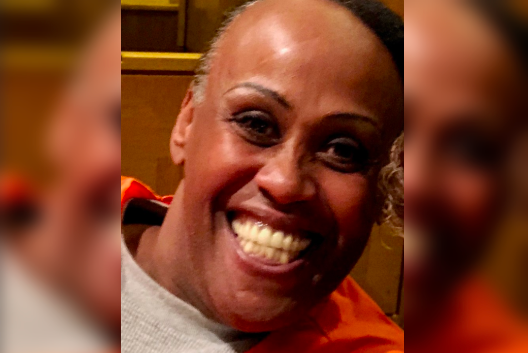Prison guards ‘set up’ a trans inmate after she made #MeToo complaints of sexual abuse against them, lawyers say

Transgender inmate C. Jay Smith (Image: Medina Orthwein LLP)
A transgender inmate who spoke out against repeated sexual abuse from prison guards and made #MeToo complaints could face another ten years behind bars after being “set up”, her lawyers say.
C Jay Smith, 59, filed a federal lawsuit last Monday alleging that staff members at San Quentin State Prison in California refused to investigate reports that she had been sexually abused.
Her 36-page complaint, seen by NBC News, claims that prison staff launched a “campaign of torture and retaliation” using “threatening and coercive tactics” in a bid to force her to withdraw her allegations. This included falsely accusing her of serious violations which could potentially add another ten years to her sentence.
“Ms Smith’s case demonstrates that the ‘#MeToo’ movement and the protections it has provided to women needs to also find its way to the violence and state-initiated torment transgender people face behind CDCR’s prison walls,” the suit says, referring to the California department of corrections and rehabilitation.
Despite living almost her entire life as a woman, Smith has spent more than two decades housed in men’s prisons.
Her initial complaint alleged that from the moment she entered prison in 1998, officers “allowed multiple men in custody to rape Ms Smith repeatedly over four consecutive days”.
When she was transferred to the San Quentin facility in 2013 she says she was violently raped again by an unknown assailant who “attacked from behind”.
The fact that she didn’t know the identity of her attacker worsened her symptoms of PTSD, and her condition was further aggravated by the repeated sexual assaults and harassment she was forced to endure at the facility.
“Ms Smith has been the target of indecent exposure and lewd sexual acts by many men in custody,” her complaint states. “She has also been verbally harassed and called homophobic and transphobic slurs by staff – including medical and custody staff – on numerous occasions.”
When she tried to speak up, Smith says she became the target of a campaign of harassment by San Quentin officers. Her cell was “ransacked” and guards left the doors open to allow “other people in custody to steal her property,” the lawsuit claims.
“Defendants then caged Ms Smith like an animal, verbally berated her, threatened her with physical assault, sexually harassed and assaulted her,” the complaint alleges.
Among the “false” reports of rules violations was a charge of possession of a deadly weapon in her cell – which turned out to be a graduation statue that was a gift from a friend years earlier as motivation to complete her GED program.
Smith’s PTSD became so bad as a result of the continued abuse that she has been in outpatient or inpatient mental health treatment for the majority of her incarceration.
Unfortunately stories like hers are all too common among transgender inmates, and Smith’s attorney Felicia Medina says her case perfectly illustrates why so few victims report sexual abuse behind bars.
“[The CDCR] knows that there’s widespread PREA violations, and what it does is it uses [disciplinary] process[es] against folks who are the most impacted, such as C. Jay, who is a transgender woman of colour, because she reported sexual assault,” Medina said.
“She was set up.”



